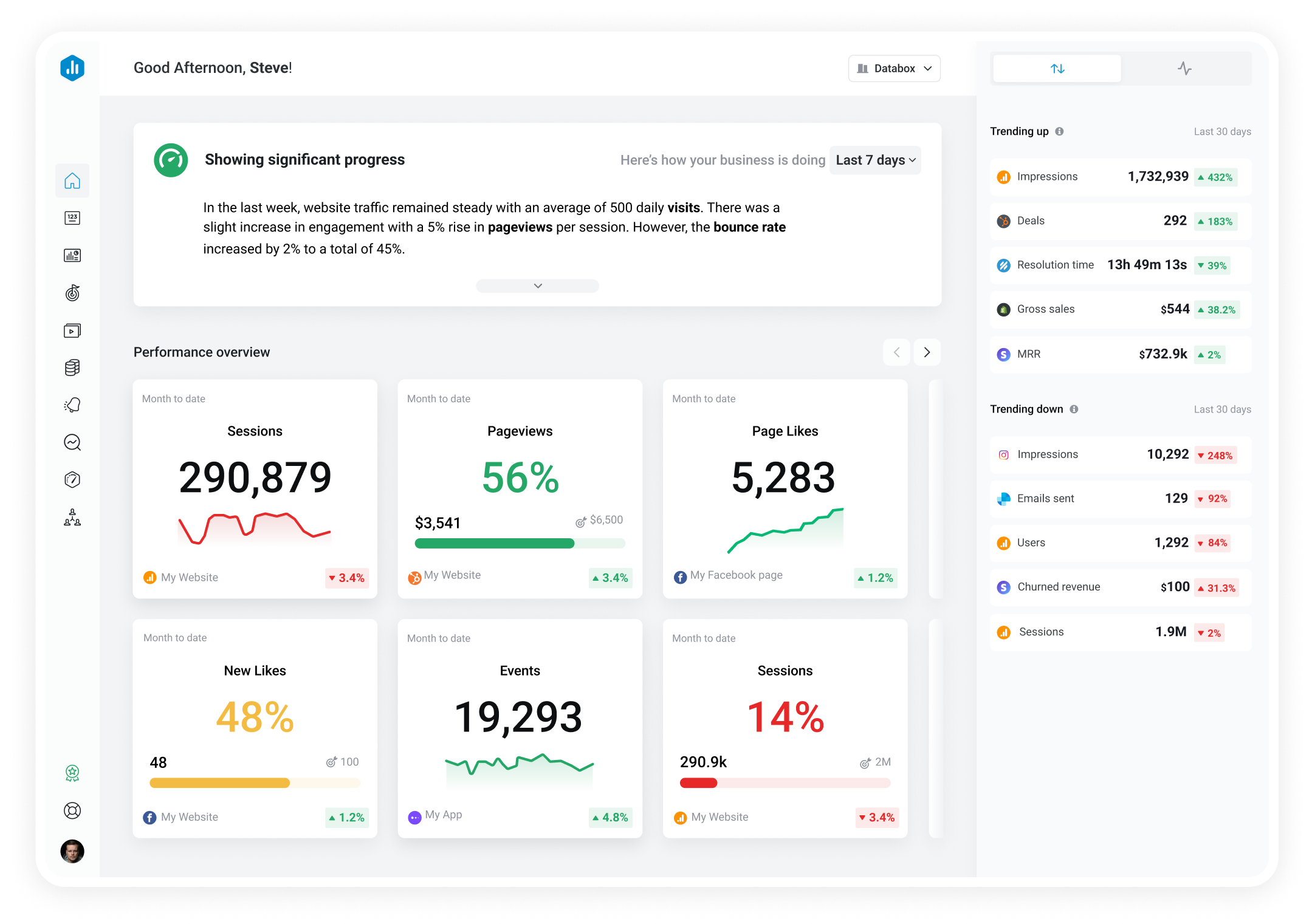Track all of your key business metrics from one screen
GET STARTED

Zapier is an online automation tool that connects your favorite apps to automate repetitive tasks without coding or relying on developers to build the integration.
Zapier provides a simple service that allows you to connect with 650+ products and with minimal technical skills required. With Zapier, you no longer have to waste your time doing repetitive tasks. Zapier is there, doing those tasks for you so you can tackle the exciting challenges of your business.
Zapier acts as a universal data connector that will bridge the gap between Databox and other products. You can send various metrics and events to Databox via Zapier and register them as datapoints that will show up on any visualization you choose.
With Databox, your Zaps can be transformed into meaningful insights and delivered to your mobile, Apple Watch, TV display or Slack channels. One of the key benefits of Databox is the ability to combine multiple data sources in one place.
Show more...
Show more...
Show more...
When you push data via Zapier, it gets stored in the connected Zapier Data Source in your Agency account. When you send a Databoard to a Client account, the data does not get sent, because it is saved in the Agency account.
In order to display the same data in a Client Accounts as in the Agency account, data needs to be pushed twice – once in the Agency account and once in the Client Account.
When connecting Zapier to Databox, Zapier asks for a token from Databox. To obtain the correct token in Databox, go to Data Manager > + New connection. Type Zapier in the search bar and click on the green Create Token button, then select Create Token in the popup window. Enter a name for a new token and click the Create button. This will create a unique push token that should be entered in Zapier.
If the correct token is not entered in Zapier, data will not be pushed to Databox.
The Databox API has a rate limit of 10 requests per second. If this limit is exceeded, an “Error: Too many requests” message will be returned and displayed in Databox.
If the request originates from Zapier, this error will be logged in the corresponding Zap’s log. In typical scenarios, such an error is rare and would only occur if more than 10 events are triggered within a single second.
